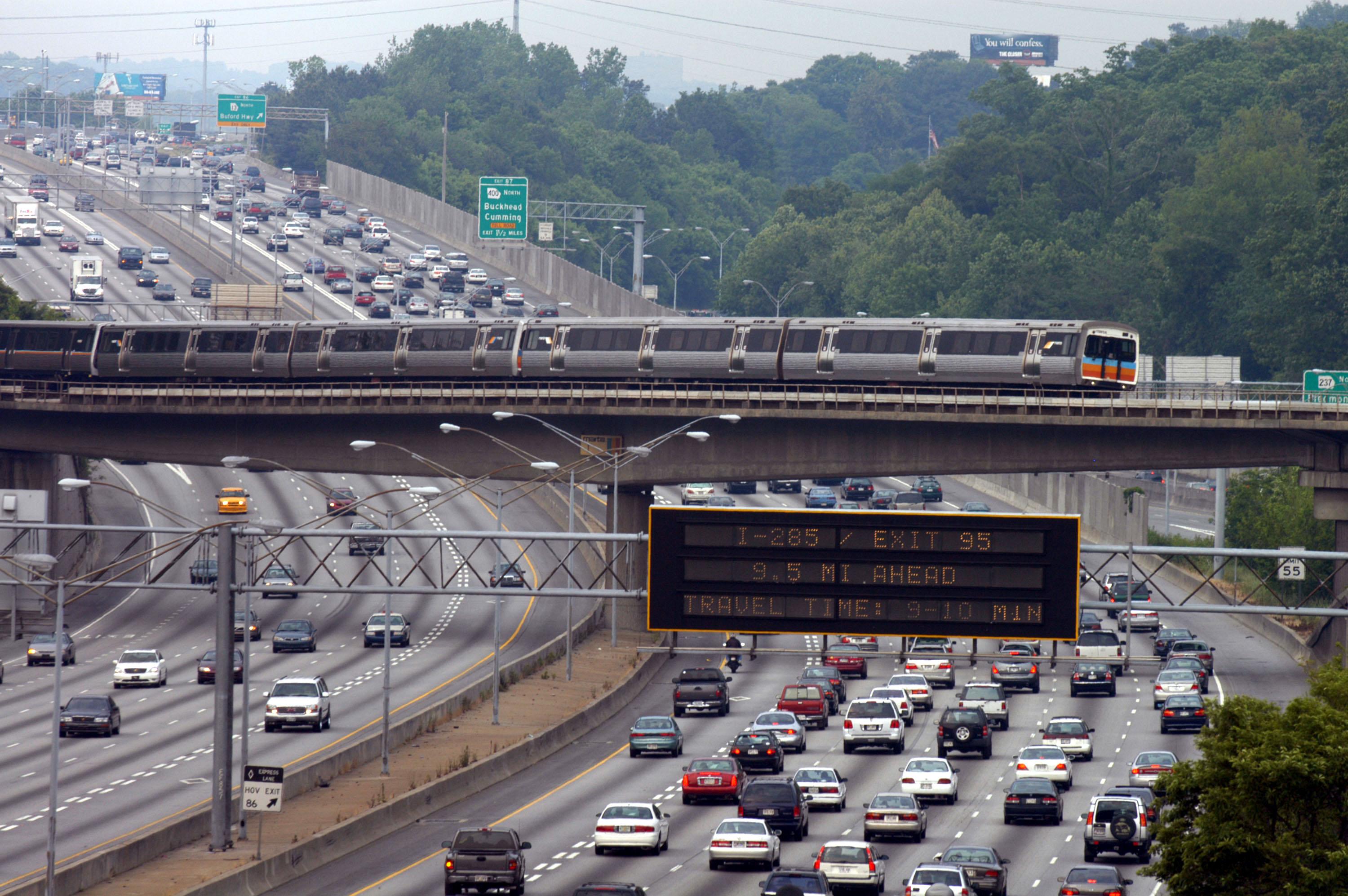The proximate cause of the ongoing traffic catastrophe in the city of Atlanta right now is a normally warm area grappling with unusual snowfall. But the larger story here is that while metropolitan Atlanta has had a lot going for it over the past two generations in terms of growth, it’s really a mess from a regional transportation planning viewpoint.
Atlanta’s sprawling urban form isn’t unusual for big southern cities, but one thing that happens is that the more you sprawl the more jurisdictions need to coordinate to build a working transportation network. And Georgia’s various class, racial, and regional divisions seem to have made that very challenging for the Atlanta area. Back in 2012, local elected officials actually did come together around a plan called T-SPLOST to raise some funds for regional investments but when it went to referendum basic voter distrust killed it:
One take away from the vote is that Atlanta is a much-divided region. While T-SPLOST was an admirable attempt at regionalism – projects were agreed to by county commissioners and mayors from all 10 counties, with input from residents – it was voted down 63 to 37 percent along suburban and urban lines. Voters in Atlanta’s urban core strongly supported T-SPLOST, while it was defeated in the suburbs by people reluctant to support projects outside of their community. That’s the wrong approach in a region with sprawling suburbs; transportation issues do not follow municipal borders and can be more efficiently and effectively dealt with on a regional basis.
You saw these similar tensions around the looming relocation of the Atlanta Braves stadium from (largely African-American) Atlanta to (largely white) Cobb County. It’s not just the loss of the team from the urban core to the whiter area, but then Cobb County’s rejection of the idea of connecting the communities:
One politician was criticized for invoking — whether intentionally or not — racial politics when discussing the stadium. The chairman of Cobb County Republicans, Joe Dendy, said in a written statement that he rejected calls for bringing rail transit to Cobb County. For years, much of the debate about MARTA has been wrapped in racial politics. White communities surrounding Atlanta rejected the transit system in votes during the civil rights era. Surveys show the transit system’s customers are roughly 74 percent black.
“It is absolutely necessary the solution is all about moving cars in and around Cobb and surrounding counties from our north and east where most Braves fans travel from, and not moving people into Cobb by rail from Atlanta,” Dendy wrote in a news release.
But it’s not just mass transit. Methodologies vary, but all ways of looking at it reveal that Georgia is one of the bottom five states in terms of highway spending per capita. The state is basically not committed to any kind of game plan. Not to adequate highway building, not to density, not to transit, not to anything. Georgia is about an average income state, so there’s no reason it shouldn’t be able to afford at least an average level of transportation infrastructure.
